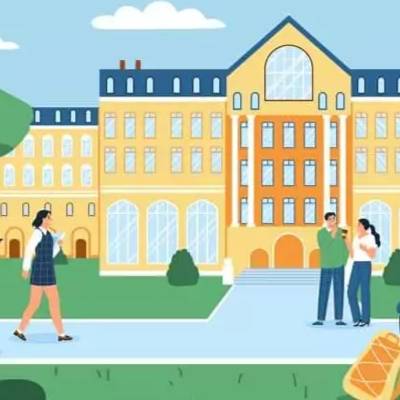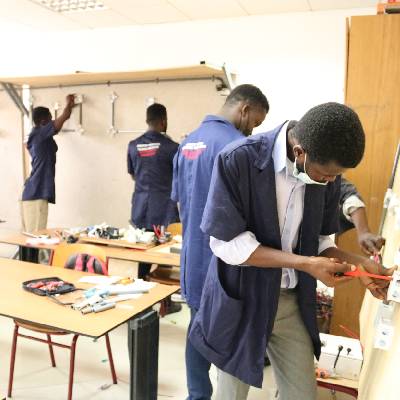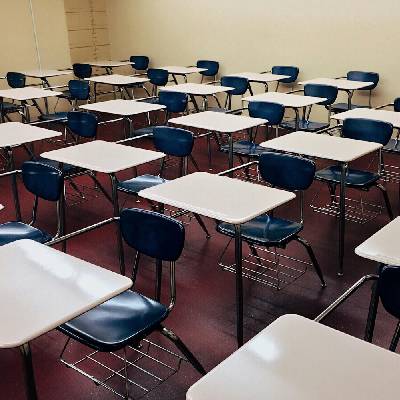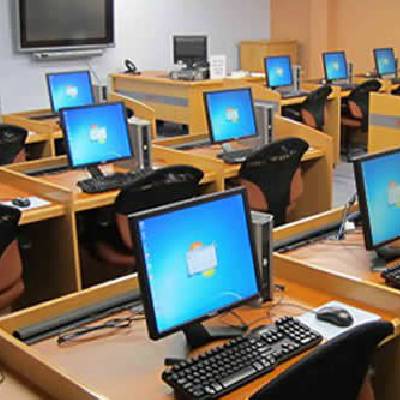
Plumbing is the system of pipes, tanks, fittings, and other apparatus required for the water supply, heating, and sanitation in a building. Plumbers work to maintain and install plumbing systems.
Students in this plumbing technology program learn how to design, install, and repair residential and commercial plumbing systems and hydronic heating systems. Some of the skills acquired are joining different types of piping materials, reading blueprints, and installing and repairing boilers, plumbing fixtures, faucets, and water heaters.
Plumbers install, repair, and maintain systems for transporting water, sewage, and gas. Plumbers who work for construction companies hook up and install a building?s plumbing and water systems to the available municipal or other water supply, adhering to codes and using a variety of tools and measurements to ensure accuracy. Those who work for plumbing repair companies visit homes and businesses to repair water, sewer, and plumbing systems, fix sinks or toilets, or replace worn or broken pipes.
Pipefitters work with high and low-pressure pipe systems used in manufacturing, power generation, and heating and cooling systems. They install and maintain these specialized systems and work on the control systems that allow for their operation and monitoring. Some pipefitters specialize in one particular area, such as the movement of high-pressure liquids or gases. Unlike plumbers, their sole concern is the proper functioning of pipes and their connections.
There has never been a better time to be a plumber, plumbers will always be in demand across building sites, homes, and domestic properties, and the qualifications you gain during this course will provide you with job security even during the worst economic times.
If you're looking for a job with high flexibility and security, then this Plumbing certificate program will give you the skills you need to embark on this fulfilling career.
Employment opportunities in the plumbing and pipe-fitting industries include:
- Installation of plumbing and heating systems in new buildings.
- Installation and maintenance of plumbing, heating, and piping systems for industries, public utilities, or government agencies.
- Self-employment is another option.
- Many graduates become self-employed plumbers after completing their apprenticeships.
Objectives of Plumbing (Craft)
The Plumbing certificate program prepares students for entry-level skills positions in both the residential and commercial plumbing industry.
Classes focus on safety, hand and power tools, materials, pipe joining methods, codebook layout, pipefitting, troubleshooting, print reading, and trade calculation.
What you will study
- Proper safety techniques and procedures
- Uses of common plumbing materials and fixtures
- Analysis of blueprints and isometric drawings
- Proper techniques and procedures for the installation of plumbing systems
- Installation of plumbing fixtures and faucets
- Plumbing code rules and regulations
Related articles
-

A Guide to Civil Engineering Degree and Diploma Programs in Kenya
08-Nov-2025 -

Electrical Engineering in Kenya: A 2025 Guide for KCSE Graduates
08-Nov-2025 -

Mechanical Engineering in Kenya: A 2025 Guide for KCSE Graduates
08-Nov-2025 -

Engineering Courses in Kenya: A Guide for 2025 KCSE Graduates
08-Nov-2025 -

Education Pathways in Kenya — From Basic Education to Tertiary | College Guide
06-Nov-2025 -

The Bird and the Mirror: A Reflection on Identity, Perception, and Illusion
07-Feb-2025
Colleges offering Plumbing (Craft)

Machakos Town
Kenya Israel Technical College

Emgwen
ACK Bishop Muge College

Gilgil
Comboni Polytechnic

Matungulu






